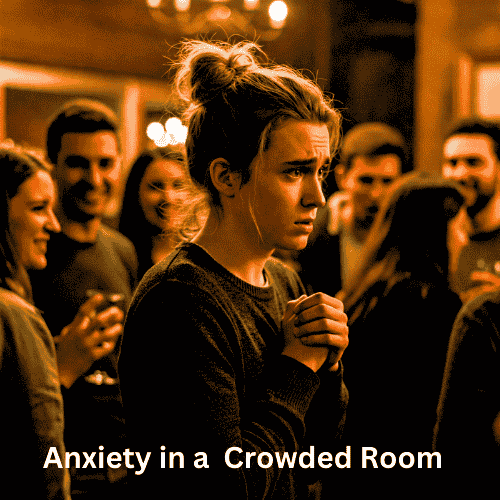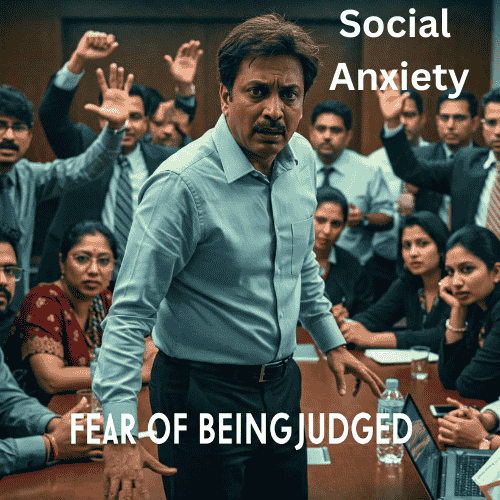

It's perfectly normal to feel nervous in social situations where we might be the focus of others, whether they're strangers or people we know. Attending a formal function, giving a speech at a wedding, or giving a presentation to work colleagues are likely to cause nervousness and anxiety, both in the lead-up and during the event.
However, for people with social anxiety disorder, performing in front of others and in social situations can lead to intense anxiety. They may fear being judged, criticized, laughed at, or humiliated in front of others, even in the most ordinary, everyday situations. For example, eating in front of others at a restaurant can be daunting for some people with social anxiety disorder.



.png)

.png)
Social Anxiety Disorder may occur in the lead-up to or during:
Social Anxiety can also be specific; where people fear a specific situation or a few situations related to a specific fear (such as being assertive at work or with their friends).
What are the Signs and Symptoms of Social Anxiety Disorder?
Common symptoms of social anxiety include physical symptoms and psychological symptoms. The physical symptoms that can be particularly distressing for people with Social Anxiety Disorder include:
Physical Symptoms
Cold Sweat
Dry Mouth
Restlessness
Trembling/Shaking
Shortness of Breath
Psychological Symptoms
Trouble listening and concentrating
Distracted thinking
Overthinking
Negative thoughts
Avoiding People Situations
Self-occupied
Stomach Sickness
These physical symptoms often cause further anxiety as the person fears others will notice – even though these signs are usually barely noticeable to those around them.
People with a social anxiety disorder also worry excessively that they will do or say the wrong thing and that something terrible will happen as a result.
People with social anxiety disorder try to avoid situations where they fear acting in a way that's humiliating or embarrassing. If avoidance isn't possible, they endure the situation but can become extremely anxious and distressed and may try to leave the situation as soon as they can. This can seriously affect their relationships, professional lives, and ability to go about their daily routine.